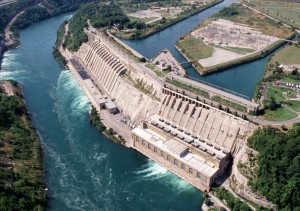In their alert “Reverse CEQA” Reversed, California Supreme Court Rejects CEQA Analysis of Impacts of the Environment on the Project, Pillsbury attorney David Farabee discusses the California Supreme Court’s recent rejection of a requirement of so-called “reverse CEQA” analysis, concluding that “CEQA does not generally require an agency to consider the effects of existing environmental conditions on a proposed project’s future users or residents.” The case is California Building Industry Association v. Bay Area Air Quality Management District, Case No. S213478 (December 17, 2015).
New EPA eDisclosure Portal for Self-Reporting Reverses FOIA Presumptions Against Nondisclosure
For several years, EPA has encouraged the regulated community to audit their facilities for compliance with environmental laws, and to self-disclose to EPA any violations noted in the audit to obtain reductions to or even eliminate altogether civil penalties if the report is made on a timely basis and demonstrates that the violations are being corrected promptly.  These policies were announced in April 2000 with a special policy made available to small businesses (the Small Business Compliance Policy). In 2008, the benefits of the policy were extended to new owners to encourage them to undertake an environmental audit of the facilities they were purchasing to address and correct existing environmental violations and to take advantage of the opportunity provided by the Audit Policy to embark upon a “fresh start” with EPA. The result of these polices was to dramatically expand the scope of environmental auditing, which, EPA has concluded, resulted in
These policies were announced in April 2000 with a special policy made available to small businesses (the Small Business Compliance Policy). In 2008, the benefits of the policy were extended to new owners to encourage them to undertake an environmental audit of the facilities they were purchasing to address and correct existing environmental violations and to take advantage of the opportunity provided by the Audit Policy to embark upon a “fresh start” with EPA. The result of these polices was to dramatically expand the scope of environmental auditing, which, EPA has concluded, resulted in
Nevada’s New Norm: A 5% Retainage Becomes the New Standard on January 1
Public and private contractors take note of new law in Nevada that limits retainage for both public and private works contracts to five percent. Previously, for public works contracts, a public body undertaking a public work was permitted to withhold as a retainage at least five percent from progress payments made to a contractor during the first half of the project and, after completion of half of the project, the amount of the retainage became optional. Under amended Section 338.515(1) of the Nevada Revised Statutes (NRS), five percent must be withheld as retainage until 50 percent of the work required by the contract has been performed. In contrast to public works projects,
New Law Expected to Take Toll on Non-Trade Union Contractors in California
In New Legislation Threatens to Further Erode Market Share of Non-Trade Union Contractors in California, Pillsbury attorneys Chris Rodriguez, Rob James, John Heisse, Andrew Bluth, and Marissa O’Connor discuss two new laws that go into effect in January 2016 that are expected to change the face of various public and private construction projects in California. According to them, these new laws are part of an ongoing effort by the State Building and Construction Trades Council of California (SBCTC) to force public and private owners to use SBCTC-affiliated contractors for various construction work and to impose obligations traditionally tied to public works—e.g., prevailing wage requirements—even on private construction projects.
Nationwide Environmental Case Law Update – Summer, Fall 2015
For contractors who often subject to one or more of federal environmental laws or regulations, below is a brief report on some the significant environmental law and administrative cases decided since late June of 2015 by jurisdiction:
District of Columbia
Energy Future Coalition, et al. v. EPA, et al., 793 F.3d 141 (D.C. Cir. July 14, 2015) — The U.S. Court of Appeals for the District of Columbia Circuit (DC Circuit) rejected a challenge to 2014 EPA rules regulating emission testing requirements for new motor vehicles, 40 C.F.R. § 1065.701(a), concluding that EPA’s rules were simply reflecting the statutory scheme enacted by the Congress.
Relieved of Duty: Congress Quietly Amends CWA to Free Some Farms From SPCC Obligations
Owners of some farms subject to EPA’s Spill Prevention, Control, and Countermeasures (SPCC) Regulation will be relieved to hear that some relief from the rigid requirements is here. EPA’s SPCC Regulation applies to nearly everyone—including farms—who manages “oil” in regulated quantities in locations where, due to the location of the oil storage facilities, any spill or release of that oil in harmful quantities could reasonably be expected to be discharged into the navigable waters of the United States in violation of the CWA. The SPCC Regulation requires the preparation of an SPCC plan that complies with 40 C.F.R. § 112.7, and can trigger training and plan certification by qualified engineers. For some farms, this is a burdensome and expensive compliance requirement.
Eight Factors That Helped Reduce a Potential $3.5B Civil Penalty to $159.5M
Everyone potentially exposed to civil penalties available under the Clean Water Act  (CWA), 33 U.S.C. § 1321(b)(7), should familiarize themselves with the eight factors a court will consider when deciding what penalty should be assessed. In the case known as “Oil Spill by the Oil Rig “Deepwater Horizon” in the Gulf of Mexico on April 20, 2010,” for Anadarko Petroleum Corporation, these factors made the difference between a penalty in the millions and one in the billions.
(CWA), 33 U.S.C. § 1321(b)(7), should familiarize themselves with the eight factors a court will consider when deciding what penalty should be assessed. In the case known as “Oil Spill by the Oil Rig “Deepwater Horizon” in the Gulf of Mexico on April 20, 2010,” for Anadarko Petroleum Corporation, these factors made the difference between a penalty in the millions and one in the billions.
Upon consideration of the first six factors set forth in Section 1321(b)(8) of the CWA for the assessment of a civil penalty, on November 30, 2015, Judge Carl Barbier of the U.S. District Court for the Eastern District of Louisiana issued a ruling finding Anadarko Petroleum Corporation, a “co-owner” of the Macondo Well, liable to the United States for civil penalties in the amount of $159.5 million. The maximum penalty that could have been assessed was $3.5 billion, but Judge Barbier concluded, after weighing the eight factors, that a civil penalty of $159.5 million would be appropriate because, as a non-operating co-owner, Anadarko’s penalty should be limited to $50 per barrel, and not $1100 per barrel.
Rejection of FERC’s Geographic Proximity Test May Mean More Competition for Private Builders
Developers subject to the Federal Power Act (FPA) should carefully consider the implications of the U.S. Court of Appeals for the District of Columbia Circuit’s recent opinion on the scope of the “municipal preference” under Section 7(a) of the FPA. The Court, in  Western Minnesota Municipal Power Agency, et al., v. FERC, recently considered the breadth of the “municipal preference” in Section 7(a) of the FPA, including the meaning of “municipality,” and declined to support the Federal Energy Regulatory Commission’s “geographic proximity test” for municipalities to qualify for the preference. Under the Court’s ruling, a municipality qualifies for the municipal preference regardless of their proximity to the location of the development. Developers may now be exposed to greater competition for developments with municipalities having a trump card because they qualify for the municipal preference. As one would hope, the Court of Appeals restated the importance of the Court’s review FERC’s interpretation under the two-step framework of Chevron U.S.A., Inc. v. NRDC, 467 U.S. 837, 842–43 (1984). The opinion, of course, also reflects the Supreme Court’s use of Chevron in deciding a number of important cases the past two terms. This opinion may also result in FERC being more careful in the future.
Western Minnesota Municipal Power Agency, et al., v. FERC, recently considered the breadth of the “municipal preference” in Section 7(a) of the FPA, including the meaning of “municipality,” and declined to support the Federal Energy Regulatory Commission’s “geographic proximity test” for municipalities to qualify for the preference. Under the Court’s ruling, a municipality qualifies for the municipal preference regardless of their proximity to the location of the development. Developers may now be exposed to greater competition for developments with municipalities having a trump card because they qualify for the municipal preference. As one would hope, the Court of Appeals restated the importance of the Court’s review FERC’s interpretation under the two-step framework of Chevron U.S.A., Inc. v. NRDC, 467 U.S. 837, 842–43 (1984). The opinion, of course, also reflects the Supreme Court’s use of Chevron in deciding a number of important cases the past two terms. This opinion may also result in FERC being more careful in the future.
“Critical Habitats” Remain a Source of Critical Uncertainty for Builders
A U.S. District Court for the District of Columbia has joined the debate regarding whether the U.S. Fish and Wildlife Service is required to comply with the National Environmental Policy Act, 42 U.S.C. §§ 4321–4347 (NEPA), when designating critical habitat based upon the requirements of the Endangered Species Act (ESA). A geographically based distinction in agency policy has resulted from a split in the U.S. Courts of Appeals on the question of whether an environmental impact statement (EIS) is required for critical habitat designations. The Tenth Circuit Court of Appeals, in Catron County Board of Commissioners, New Mexico, v. United States Fish and Wildlife Service, et al., 75 F.3d 1429, 1436 (10th Cir. 1996), held that the Fish and Wildlife Service must comply with NEPA when designating critical habitat under the ESA. 75 F.3d at 1436. By contrast, the Ninth Circuit, in Douglas County v. Babbitt, et al., 48 F.3d 1495, 1502-07 (9th Cir. 1999), held that the Fish and Wildlife Service does not have to comply with NEPA when designating critical habitat. NEPA is generally understood to be a “procedural statute” that is designed to ensure that federal agencies make fully informed and well-considered decisions. While the U.S. Court of Appeals for the District of Columbia circuit has not had an occasion to rule on this NEPA issue, on November 13, 2015, the U.S. District Court for the District of Columbia issued a Memorandum Opinion agreeing with the Ninth Circuit that NEPA is not applicable to critical habitat determinations. The case is Otay Mesa Property, L.P., v. United States Department of the Interior. Continue Reading ›
Four Things to Know About Sixth Circuit’s Rejection of CAA Preemption of State Common Law Claims
In Sixth Circuit Rejects Clean Air Act Preemption of State Common Law Claims: Four Things to Know, Pillsbury attorneys Matt Morrison and Bryan Stockton explore the Six Circuit Court of Appeals recent rejection of Clean Air Act, 42 U.S.C. §§ 7401 et seq. (CAA), preemption of state common law claims in Merrick, et al. v. Diageo Americas Supply, Inc. and Little et al. v. Louisville Gas & Electric Company; PPL Corporation. The takeaway is that a facility that is otherwise in compliance with CAA emission requirements can still face lawsuits by neighboring landowners for traditional torts such as nuisance and trespass. Merrick and Little add to the foundation of precedent across the Second, Third, and Sixth Circuits, and Iowa Supreme Court.




